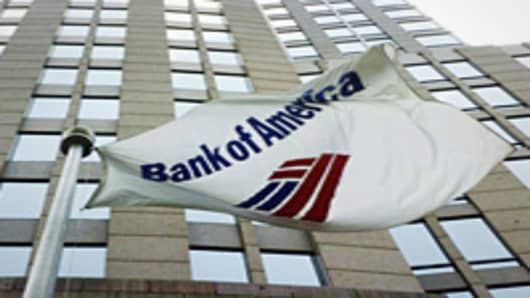Bank of America has told US regulators that it has sold enough assets this year to meet the final condition that was set on its landmark plan to repay $45 billion in government bail-out funding.
Raising the required $3 billion in capital through gains on the sales of businesses and other assets will help remove one of the uncertainties that has dogged the biggest US bank for much of the year.
BofA was given until the end of this year to record the gains. US regulators believe the move will help build the bank’s equity as it regains its footing after leaving the government’s troubled asset relief program (Tarp).
If BofA fails to satisfy the Federal Reserve Board, the lender will have to issue additional common shares, diluting its per-share earnings.
People familiar with the bank said it had told the Fed that recent moves to pare back its stake in BlackRock and sell its right to buy shares in China Construction Bank’s fundraising would bring them close to the $3 billion requirement.
The remainder, people said, would come as the bank records a tax gain from holding a smaller slice of BlackRock, the money manager.
BofA’s repayment of Tarp funds in December 2009 was hailed as a victory for the US Treasury, as taxpayers earned a profit on the bail-out, and for the bank.
According to Treasury officials, 122 Tarp recipients – including the country’s biggest banks – have now repaid all, or a portion, of their government aid. Fed officials have not yet responded to BofA’s moves.
“We continue to make progress on the commitment, and we will provide an update at the appropriate time,” a BofA spokesman said.
BofA had sold more than $10 billion in assets through the third quarter, recording $1.9 billion in gains. The bank sold 43.6 million shares of BlackRock through the asset manager’s secondary offering in November.
The bank had become BlackRock’s largest investor through Merrill Lynch which opted to fold its investment management arm into the company in 2006. BofA in turn acquired Merrill during the financial crisis.
The bank also sold its right to buy 1.79 million shares in CCB. Betsy Graseck, an analyst with Morgan Stanley, predicted BofA would book a $458 million gain on the transaction.
In its third-quarter filing with the Securities and Exchange Commission, the bank said it would fill any shortfall on its capital requirement by issuing stock to certain employees in lieu of year-end cash awards.
By limiting the increase in outstanding stock, BofA can avoid diluting its per-share earnings.


